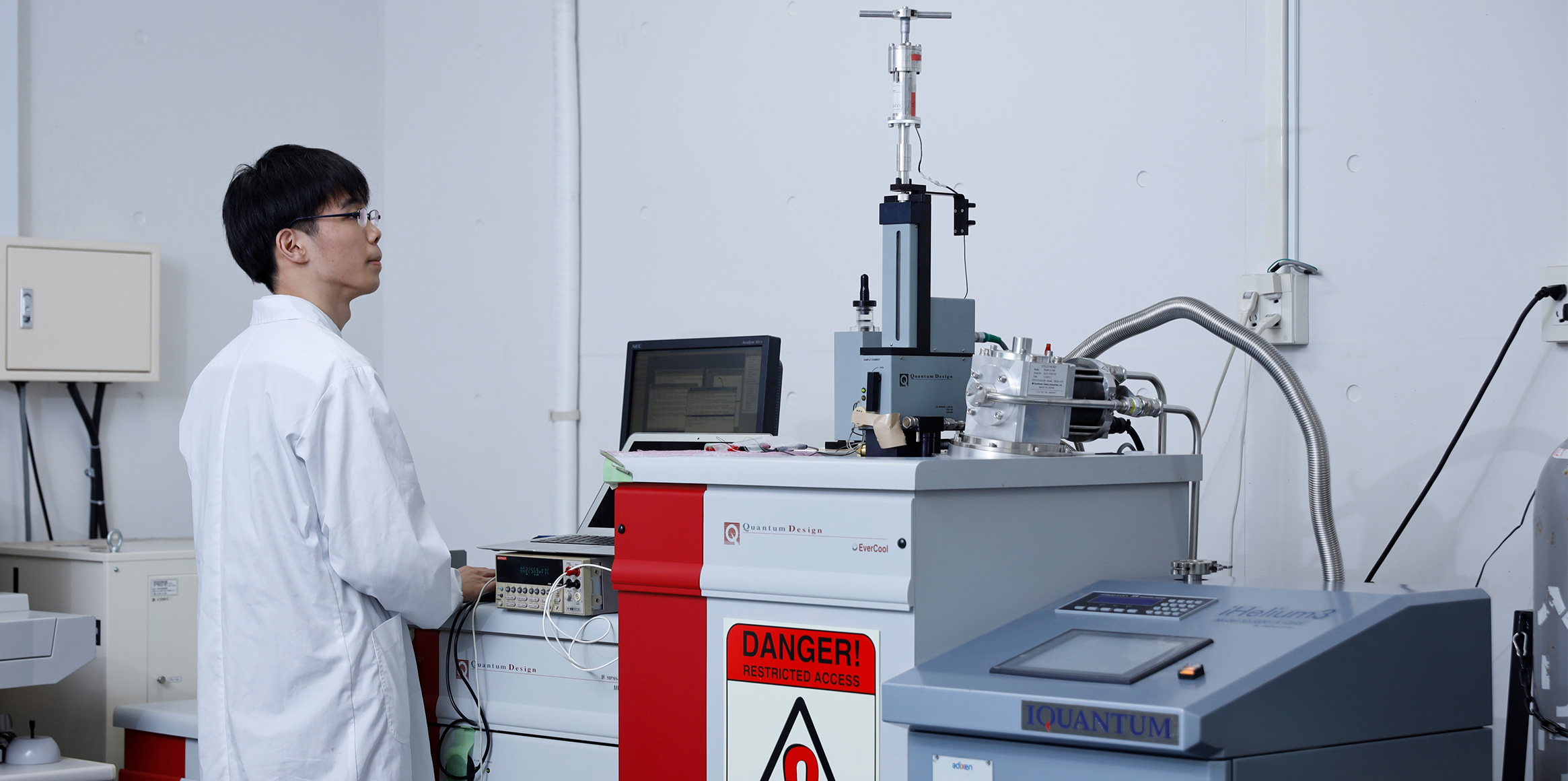Chemistry is an academic field that covers constructional principles and aspects of material changes from diverse perspectives, ranging from a micro perspective (atoms and molecules) to a macro perspective. The Department of Chemistry contributes to sustainably constructing an easily-livable society by producing environment-friendly substances that are academically meaningful and useful for human lives.
Research Groups & Research Areas
-
Organic Chemistry
The area of organic chemistry conducts research on the various properties and synthetic processes for manufacturing organic compounds. Organic compounds contain carbon atoms, and by bonding a large number of carbon atoms, we can form compounds of complicated structures. The molecules making up living organisms, as well as the majority of important compounds used for medicine and the like, are organic compounds.
Endo Research Group / Kawai Research Group / Saito Research Group / Shimonaka Research Group
-
Inorganic Chemistry
The area of inorganic chemistry deals with all elements in the periodic table, but the research is mainly focused on the metal elements. In particular, "complexes" can change the nature even of a metal element by changing its coat (ligands). By changing molecular sequences while enjoying beautiful colors, we open up a world of new compounds that are functional or serve as catalysts.
Enomoto Research Group / Otsubo Research Group / Tadokoro Research Group
-
Physical Chemistry
What structure and nature does a substance have, and how does it react? The thrill of physical chemistry lies in finding answers to these kinds of questions through fine-tuned experiments and analysis. How about jumping into a world of substances never seen by anyone else before?
Hishida Research Group / Mori Research Group / Watanabe Research Group / Yui Research Group
-
Chemical Education
TUS has a strong tradition of training junior and senior high school teachers, and it develops educational experiments, based in physical research, geared towards junior and senior high school students. TUS is also studying how to improve the vague and incorrect texts found in modern textbooks. Are you interested in turning your own research results into lessons for the classroom?
Inoue Research Group
List of Faculty Members
| Name | Title | Research Area | Keyword |
|---|---|---|---|
| ENOMOTO Masaya | Professor | Functional solid state chemistry | Solid state physics on coordination chemistry |
| INOUE Masayuki | Professor | Education on school subjects and activities | Chemical Education |
| KAWAI Hidetoshi | Professor | Organic chemistry | Physical Organic Chemistry, Supramolecular Chemistry |
| SAITO Shinichi | Professor | Organic chemistry | Organometallic Chemistry, Supramolecular Chemistry, Synthetic Organic Chemistry |
| TADOKORO Makoto | Professor | Inorganic chemistry Functional solid state chemistry Aquatic life science |
Supramolecular Coordination Chemistry/Protonics |
| YUI Hiroharu | Professor | Physical chemistry | |
| ENDO Kohei | Associate Professor | Organic chemistry | Molecular Catalyst, Organometallic Chemistry |
| HISHIDA Mafumi | Associate Professor | Biological physics/Chemical physics/Soft matter physics Physical chemistry Biophysics |
Self-assembly, surfactants, phospholipids, polymers, proteins, hydration Self-assembly, surfactants, phospholipids, polymers, proteins, hydration phospholipids, proteins, hydration |
| MORI Takaharu | Associate Professor | Physical chemistry | Computer simulations, Biomolecules |
| OTSUBO Kazuya | Associate Professor | Inorganic chemistry | |
| TSUKAKOSHI Kaori | Associate Professor | Chemical biology Biofunction/Bioprocess |
|
| WATANABE Kazuo | Associate Professor | Physical chemistry | Surface Physical Chemistry, Photochemistry, Plasmonics |
| KOBAYASHI Fumiya | Junior Associate Professor | Inorganic chemistry | Coordination Chemistry |
| TSUCHIDO Yoshitaka | Junior Associate Professor | Organic chemistry | Supramolecular Chemistry |
| ISHIZAKI Toshiharu | Assistant Professor | Inorganic chemistry | |
| KAWASAKI Tairin | Assistant Professor | Organic chemistry | |
| OGUCHI Kenichi | Assistant Professor | Mathematical physics/Fundamental condensed matter physics | |
| SUZUKI Takahiro | Assistant Professor | Science education | Chemical education |
| YAMANOMOTO Ken | Assistant Professor | Organic chemistry | Organic synthesis, Asymmetric synthesis |
Information on Career Paths
-
Graduate School69.4%
-
Information Industry5.2%
-
Wholesale and Retail Trade3.1%
-
Chemical Engineering3.1%
-
Electronic Parts2.0%
-
Steel and Metal Mining2.0%
-
Non-Profit Organization1.0%
-
Professional and Technical Services1.0%
-
Civil Servant1.0%
-
Finance, Insurance1.0%
-
Education, Learning Support1.0%
-
Other Industries4.1%
-
Other(Persons Planning on Continuing Education, Studying Abroad, etc.)6.1%

